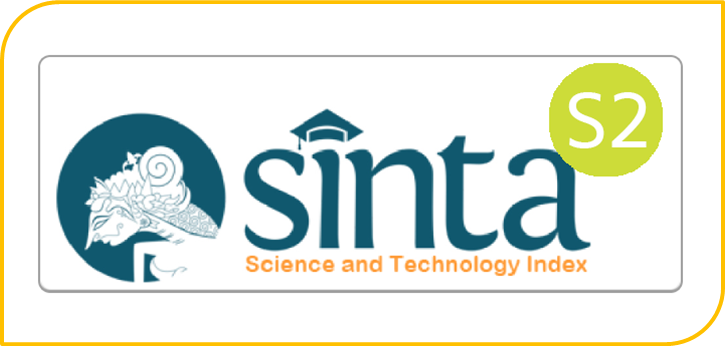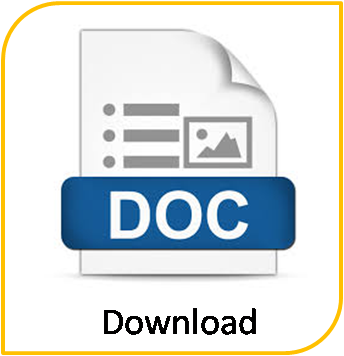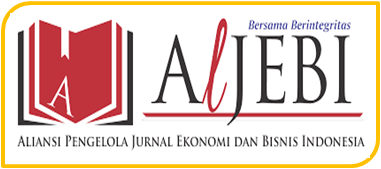STRENGTHENING THE ISLAMIC DIGITAL PAYMENT SYSTEM THROUGH SHARIA ELECTRONIC WALLET (E-WALLET)
Abstract
The objective of this research is to propose a strategy to strengthen the islamic digital wallet or electronic wallet (e-wallet) in Indonesia to compete with its conventional counterparts. Qualitative research methods with study literature were chosen to explore previous research that had been discussed on e-wallets particularly from the Islamic perspective both at global and national levels through reputable journals, reports, and other supportive documents. The results depicted that the Islamic e-wallet can be optimized through four points, namely promotion, education, collaboration, and trust but remained fulfilling sharia compliance so that the values of Islamic teachings are not vanished. Promotions in the form of cashback can be substituted for points to be converted into donations through the Islamic crowdfunding platform. Education can be improved through social media platforms. The way is by coordinating with Islamic public figures, collaboration with merchants and service providers. Finally increasing trust by safeguarding user data and funds.
Keywords
Full Text:
PDFReferences
Aji, H. M., Berakon, I., & Riza, A. F. (2020). The effects of subjective norm and knowledge about riba on intention to use e-money in Indonesia. Journal of Islamic Marketing, 12(6), 1180–1196. https://doi.org/10.1108/JIMA-10-2019-0203
Aji, H. M. (2019). E-Money and ‘riba’: Understanding the business model. The Jakarta Post. https://www.thejakartapost.com/academia/2019/04/ 08/e-money-and-riba-understanding-the-business-model.html
Akmal, H., Mellina, T., Jamal, M., Zarkasyi, H. F. (2020). Konsep Penjagaan Terhadap Harta Dalam Wisata Syariah. IJTIHAD, 14(1), 1–20. https://doi.org/10.21111/ijtihad.v14i1.4501
Alam, M. M., Awawdeh, A. E., & Muhamad, A. I. B. (2021). Using e-wallet for business process development: challenges and prospects in Malaysia. Business Process Management Journal, 27(4), 1142-1162. https://doi.org/10.1108/BPMJ-11-2020-0528
Ali, M., Raza, S. A., Khamis, B., Puah, C. H., & Amin, H. (2021). How perceived risk, benefit and trust determine user Fintech adoption: a new dimension for Islamic finance. Foresight, 23(4), 403–420. https://doi.org/10.1108/FS-09-2020-0095
Amelia, Fitri; Fikriyah, K. (2020). Hubungan Promo Cashback
Terhadap Loyalitas Pelanggan Muslim Surabaya Dalam Pelayanan Digital Wallet Ovo. Jurnal Ekonomika Dan Bisnis Islam, 3(2), 108–115.
Bakar, N. A., Rosbi, S., & Uzaki, K. (2020). E-Wallet Transactional Framework for Digital Economy : A Perspective from Islamic Financial Engineering. International Journal of Management Science and Business Administration, 6(3), 50–57. https://doi.org/10.18775/ijmsba.1849-5664-5419.2014.63.1005
Bank Indonesia. (2018). Peraturan Bank Indonesia Nomor 20/6/PBI/2018 tentang Uang Elektronik. In Bank Indonesia.
Bank Indonesia. (2020a). Daftar Penerbit Uang Elektronik. https://www.bi.go.id/id/statistik/sistem-pembayaran/uang-elektronik/contents/penyelenggara uang elektronik.aspx
Bank Indonesia. (2020b). Total Transaksi Uang Elektronik. https://www.bi.go.id/id/statistik/sistem-pembayaran/uang-elektronik/contents/transaksi.aspx
Darmansyah, F. B. A., Hendratmi, A., & Aziz, P. F. (2020). Factors determining behavioral intentions to use Islamic financial technology: Three competing models. Journal of Islamic Marketing. 12(4), 794-812. https://doi.org/10.1108/JIMA-12-2019-0252
Djamaluddin, S., Hidayanto, A. N., & Wardhani, S. (2016). Perception of beneficiaries towards adoption of e-money in the distribution of social assistance in Indonesia. Economic Journal of Emerging Markets, 8(1), 13–24. https://doi.org/10.20885/ejem.vol8.iss1.art2
Firpo, J. (n.d.). E-Money – Mobile Money – Mobile Banking – What’s the Difference? World Bank Blogs. Retrieved July 3, 2020, from https://blogs.worldbank.org/psd/e-money-mobile-money-mobile-banking-what-s-the-difference
Forrester Research. (2017). The Next Phase Of Digital Wallet Adoption (Issue September).
Ipsos. (2020). Ipsos Media Conference - Strategi Menang Tanpa Bakar Uang. Retrieved July 3, 2020, from https://www.ipsos.com/en-id/ipsos-media-conference-strategi-menang-tanpa-bakar-uang
Jones, N., Borgman, R., & Ulusoy, E. (2015). Impact of social media on small businesses. Journal of Small Business and Enterprise Development, 22(4), 611–632. https://doi.org/10.1108/JSBED-09-2013-0133
Keegan, B. J., & Rowley, J. (2017). Evaluation and decision making in social media marketing. Management Decision, 55(1), 15–31. https://doi.org/10.1108/MD-10-2015-0450
Komite Nasional Keuangan Syariah. (2018). Masterplan Ekonomi Syariah Indonesia 2019-2024. In Kementerian Perencanaan Pembangunan Nasional/ Badan Perencanaan Pembangunan Nasional.
Putra, H. D., Kusumawati, A., Astuti, E. S., & Abdillah, Y. (2020). Effect of brand trust and commitment of a mobile wallet in Indonesia. Utopia y Praxis Latinoamericana, 25(Extra 2), 397–405. https://doi.org/10.5281/ zenodo.3815290
Putra, H. D., Astuti, E. S., Kusumawati, A., & Abdillah, Y. (2020). Knowing the reasons of using E money LinkAja in Indonesia. Talent Development and Excellence, 12(3), 242–250.
Rafdinal, W., & Senalasari, W. (2021). Predicting the adoption of mobile payment applications during the COVID-19 pandemic. International Journal of Bank Marketing. https://doi.org/10.1108/IJBM-10-2020-0532
Reskyana, N. C. (2020). Analysis of Factors Affecting Continuance Usage Intention of LinkAja Applications. Almana: Jurnal Manajemen Dan Bisnis, 4(1), 17–28.
Samsumar, L. D. (2016). Konsep Dan Tantangan Penggunaan Teknologi E-Money Sebagai Alat Pembayaran Alternatif Di Indonesia. METHODIKA: Jurnal Teknik Informatika Dan Sistem Informasi, 2(1), 102–107.
Susanto, P., Hoque, M. E., Hashim, N. M., Shah, N. U., & Alam, M. N. (2020). Moderating effects of perceived risk on the determinants – outcome nexus of e-money behaviour. International Journal of Emerging Markets. https://doi.org/10.1108/IJOEM-05-2019-0382
Ulfi, I. (2020). Tantangan Dan Peluang Kebijakan Non-Tunai: Sebuah Studi Literatur. Jurnal Ilmiah Ekonomi Bisnis, 25(1), 55–65. https://doi.org/10.35760/eb.2020.v25i1.2379
Utami, M. C. (2019). Implementasi Analytical Hierarchy Process (AHP) Dalam Pemilihan E-Wallet Untuk Mahasiswa. Jurnal Ilmiah Matrik, 21(3), 259–265. https://doi.org/10.33557/jurnalmatrik.v21i3.730
Hootsuite. (2020). DIGITAL 2020: INDONESIA. https://datareportal.com/reports/digital-2020-indonesia
Widyastuti, K., Handayani, P. W., Wilarso, I. (2017). Tantangan dan Hambatan Implementasi Produk Uang Elektronik di Indonesia: Studi Kasus PT XYZ. Jurnal Sistem Informasi (Journal of Information System), 13(1), 38–48.
Yin, R. K. (2014). Case Study Research Design and Methods (5th Editio). SAGE Publications.
Zulni, D., A., & Achiria, S. (2020). Implementation of Islamic Business Ethics in Digital Wallet: Literature Review Approach. EkBis: Jurnal Ekonomi Dan Bisnis, 3(1), 232–241. https://doi.org/10.14421/EkBis.2019.3.1.1181
DOI: https://doi.org/10.18860/ed.v9i2.11451
Refbacks
- There are currently no refbacks.
Editorial Office:
Megawati Soekarnoputri Building
Faculty of Economics
E-mail: eldinar@uin-malang.ac.id
Universitas Islam Negeri Maulana Malik Ibrahim Malang
E-ISSN 2622-0083

El Dinar under a CC BY SA 4.0 International License.
Member of:
Indexed By:
















